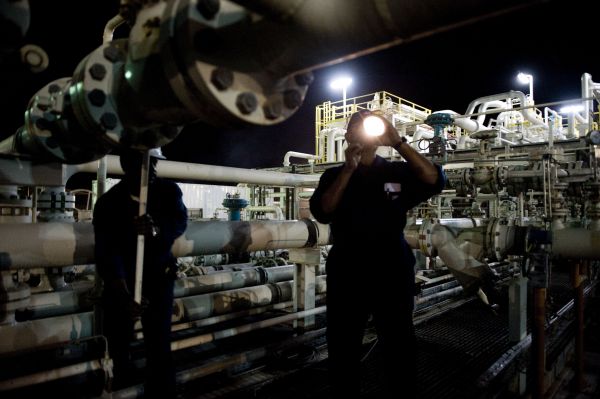New details of KRG oil deals reveal latent risks
Kurdistan's oil trading arrangements have provided independent revenue streams, but they also present problems, including rising debts and further political controversy.
Workers measure the pressure at the Central Processing Facility at the Tawke oil field in Iraqi Kurdistan in August 2012. (SEBASTIAN MEYER/Metrography/Iraq Oil Report)
ERBIL - When the Kurdistan Regional Government (KRG) decided to walk away from an oil deal with Baghdad, in June, it gambled that it could generate a more stable revenue stream - and help remedy a crippling financial crisis - by exporting all of its oil independently.
But four months later, new details of the KRG's independent oil exports reveal a tenuous financial situation. While the KRG Ministry of Natural Resources (MNR) has increased the region's overall income, it is also accumulating billions of dollars in debts to oil traders while generating uncertain cash flow that fluctuates according to circumstances outside of its control.
Login to your account
Subscribe for news access
Annual News subscribers receive access to the full archive of Iraq Oil Report articles.





